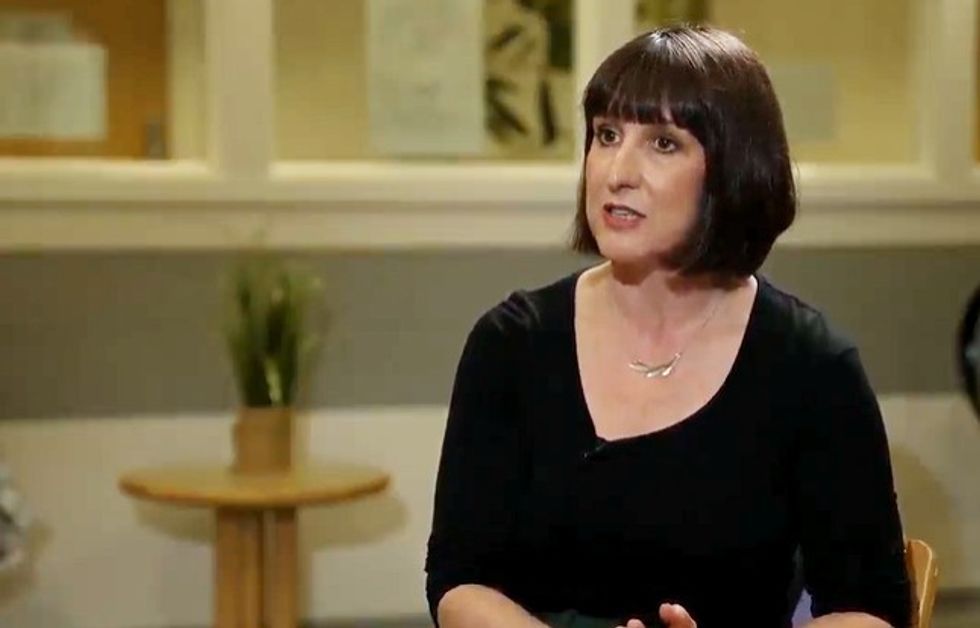Public-sector workers are set to be shielded from Labour’s proposed tax raid on employers’ pension contributions, while those in the private sector face lower wages and less money in retirement.
Rachel Reeves is expected to announce plans to impose national insurance on these contributions in her upcoming budget on October 30.
The measure, aimed at raising £15.4billion, will exempt the NHS and Government departments as the Treasury is expected to reimburse public-sector employers to prevent significant budget cuts, at an estimated cost of £5billion.
This decision means the burden of the tax increase will fall entirely on businesses and private-sector workers. Experts warn that employees in the private sector could face less generous pensions and reduced future pay rises as a result.
There are also concerns that introducing national insurance on pension contributions could undermine salary sacrifice schemes.
It could remove incentives for companies to offer these schemes.

The NHS and Government departments will be reimbursed if the Chancellor decides to mount a tax raid on employers’ pension contribution
GETTY
Sir Steve Webb, a former Pensions Minister and a partner at the pensions consultancy LCP, said: “It is highly likely that the Government would reimburse schools, hospitals and other public-sector employers if it decided to charge national insurance contributions on the money which employers pay into workplace pensions.
“Such a measure would therefore fall entirely on private-sector firms and their workers. If this policy was implemented, private-sector firms would, in future, be less willing to offer generous pension packages, thereby reducing the retirement incomes of today’s workers.
“This would further increase the already large gap between public-sector workplace pensions and private-sector pensions. Any increase in payroll costs would also be likely to depress wages, probably in the form of lower future pay increases.
“There is also the risk of unintended consequences; that this could hit salary sacrifice schemes and ultimately affect the take-home pay of workers who currently benefit from such schemes.”
Reeves is reportedly exploring alternative measures to raise the £16billion she deems necessary to fill the “black hole” in public finances.
Among the options under consideration are adjustments to capital gains tax, which is currently charged at a lower rate than income tax.
The Chancellor is also examining the closure of inheritance tax loopholes. This move could potentially raise £4billion for the Treasury, according to the Institute for Fiscal Studies.
Another possibility being explored is reducing the amount people can withdraw from their pension pots tax-free upon retirement, currently set at £268,275. This scheme costs the exchequer £5.5billion annually.
While the proposed changes aim to address public finances, concerns remain for pensioners and older citizens. Dennis Reed, Director of Silver Voices, warned of potential further cuts to senior benefits.
Reed cautioned: “If the Government successfully rides out this storm, they will inevitably squeeze senior citizens further, perhaps by means-testing free prescriptions, bus passes and even the state pension itself.”
These worries follow Labour’s decision to cut the Winter Fuel Payment. Reed urged older people to “fight for our dignity in our remaining years on this planet.”
LATEST DEVELOPMENTS:

Rachel Reeves has asserted that ‘tough decisions’ will need to be made at the Budget
GB NEWS
Darren Jones, the Chief Secretary to the Treasury, said: “We have inherited a £22billion black hole in the country’s public finances, including no plan to fund pay deals for millions of public-sector workers. Strikes cost at least £3billion last year, so it was the right thing to do to end those damaging disputes.
“Resolving this black hole at the Budget will require difficult decisions to fix the foundations of our economy and begin delivering on the promise of change.”